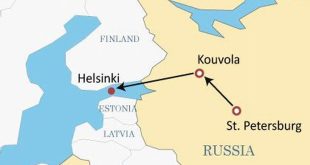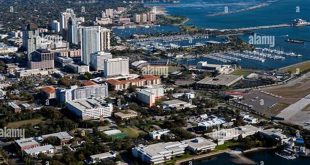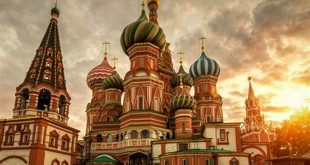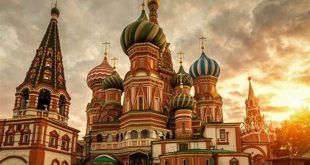Traveling by train is a popular and convenient way to get between Moscow and St Petersburg, two of Russia’s most popular cities. The journey takes around 4 hours and 30 minutes by high-speed train, and there are several departures throughout the day.
Editor’s Note: This article was last updated on [Date]. Since then, there may have been changes to train schedules or prices. Please check with the train operator for the most up-to-date information.
In this guide, we’ll provide you with all the information you need to know about taking the train from Moscow to St Petersburg, including:
- Train schedules and fares
- How to buy tickets
- What to expect on the journey
- Tips for making the most of your trip
So whether you’re planning a weekend getaway or a longer vacation, read on for everything you need to know about taking the train from Moscow to St Petersburg.
How Long is the Train from Moscow to St Petersburg?
When planning a trip from Moscow to St Petersburg, understanding the duration of the train journey is crucial. Here are seven key aspects to consider:
- Distance: Approximately 650 kilometers (404 miles)
- Duration: Around 4 hours and 30 minutes by high-speed train
- Frequency: Multiple departures throughout the day
- Cost: Varies depending on ticket type and travel class
- Comfort: Modern trains offer comfortable seating and amenities
- Convenience: Train stations are centrally located in both cities
- Scenic route: Enjoy picturesque landscapes along the way
These aspects collectively influence the overall experience and planning of the train journey between Moscow and St Petersburg. The duration of the trip allows for efficient travel while providing a comfortable and scenic experience. The frequency of departures ensures flexibility in scheduling, and the convenient locations of the train stations in both cities enhance accessibility. Understanding these key aspects empowers travelers to make informed decisions and optimize their journey between these two vibrant Russian cities.
Distance
The distance between Moscow and St Petersburg plays a significant role in determining the duration of the train journey. The greater the distance, the longer the travel time. In this case, the distance of approximately 650 kilometers (404 miles) contributes to the train journey’s duration of around 4 hours and 30 minutes.
- Shorter Distances, Faster Journeys: For shorter distances, such as Moscow to Nizhny Novgorod (approximately 400 kilometers), the train journey takes around 3 hours and 30 minutes. This demonstrates the direct relationship between distance and travel time.
- Longer Distances, Extended Journeys: Conversely, longer distances result in extended train journeys. For instance, the train journey from Moscow to Yekaterinburg (approximately 1,700 kilometers) takes around 24 hours.
- High-Speed Trains Mitigate Distance: High-speed trains, such as the Sapsan, can mitigate the impact of distance by traveling at faster speeds. The Sapsan’s speed of up to 250 kilometers per hour reduces the travel time between Moscow and St Petersburg, despite the relatively long distance.
- Implications for Travel Planning: Understanding the distance between Moscow and St Petersburg helps travelers plan their journey effectively. They can estimate the travel time, make appropriate connections, and optimize their overall itinerary.
In summary, the distance of approximately 650 kilometers (404 miles) between Moscow and St Petersburg is a key factor in determining the duration of the train journey. This distance contributes to the journey’s duration of around 4 hours and 30 minutes, highlighting the relationship between distance and travel time. Travelers can leverage this understanding to plan their journey efficiently and make informed decisions about their itinerary.
Duration
The duration of the train journey from Moscow to St Petersburg, approximately 4 hours and 30 minutes by high-speed train, is a crucial component of understanding “how long is the train from Moscow to St Petersburg.” This duration encompasses several key aspects:
- Planning and Scheduling: Knowing the duration of the train journey enables travelers to plan their itinerary effectively. They can determine departure and arrival times, make necessary connections, and optimize their overall travel schedule.
- Expectation Management: The duration of the journey sets realistic expectations for travelers. They can anticipate the time they will spend on the train and plan accordingly, whether for work, relaxation, or entertainment.
- Comparison with Other Modes of Transport: The duration of the train journey can be compared to other modes of transport, such as or automobiles. This comparison helps travelers make informed decisions about the best mode of transport for their needs and preferences.
- High-Speed Advantage: The use of high-speed trains significantly reduces the travel time between Moscow and St Petersburg. Compared to regular trains, which may take up to 8 hours or more, high-speed trains offer a substantial time saving.
- Comfort and Convenience: High-speed trains provide a comfortable and convenient travel experience. Passengers can enjoy spacious seating, Wi-Fi, and dining options, making the journey more enjoyable and productive.
In summary, the duration of the train journey from Moscow to St Petersburg, approximately 4 hours and 30 minutes by high-speed train, is a vital piece of information that helps travelers plan their journey effectively, manage expectations, and make informed decisions about their mode of transport. It also highlights the advantages of high-speed rail travel, offering a comfortable, convenient, and time-saving option for traveling between these two major Russian cities.
Frequency
The frequency of train departures between Moscow and St Petersburg plays a significant role in understanding “how long is the train from Moscow to St Petersburg.” Multiple departures throughout the day offer several advantages:
- Flexibility and Convenience: Multiple departures provide travelers with flexibility and convenience in planning their journey. They can choose a departure time that aligns with their schedule and preferences, whether for early morning, midday, or evening travel.
- Reduced Waiting Time: With multiple departures, travelers can minimize waiting time at train stations. If they miss one train, they can easily catch the next one without significant delay, reducing inconvenience and stress.
- Optimized Connections: The frequency of departures allows travelers to optimize connections with other modes of transport, such as flights or local trains. They can plan their itinerary to minimize layovers and maximize their travel time.
- Increased Capacity: Multiple departures increase the overall capacity for train travel between Moscow and St Petersburg. This is particularly beneficial during peak travel periods or when there is high demand for tickets.
Understanding the frequency of train departures is essential for travelers to plan their journey effectively. It empowers them to choose a departure time that suits their schedule, reduces waiting time, optimizes connections, and ensures a smooth and convenient travel experience.
Cost
The cost of a train ticket from Moscow to St Petersburg can vary depending on the type of ticket and travel class selected. This variation is directly related to the duration of the train journey, as different ticket types and travel classes offer varying levels of comfort, amenities, and flexibility.
- Ticket Type: The type of ticket purchased, such as a one-way ticket, round-trip ticket, or flexible ticket, can impact the cost. Flexible tickets, which allow for changes or cancellations, typically cost more than standard tickets.
- Travel Class: The travel class selected, such as economy, business, or first class, also affects the ticket price. Higher travel classes offer more comfortable seating, additional amenities, and exclusive services, resulting in a higher cost.
- Advance Purchase: Purchasing tickets in advance can often lead to lower fares compared to buying tickets closer to the travel date. Advance purchase discounts are commonly offered to encourage early booking and secure passenger demand.
- Peak Season: The time of year and day of the week can influence ticket prices. Traveling during peak season or on weekends generally costs more than traveling during off-season or on weekdays.
Understanding the cost variations associated with different ticket types and travel classes empowers travelers to make informed decisions based on their budget and travel preferences. By considering these factors, travelers can optimize their travel expenses and choose the best option that aligns with their needs and expectations.
Comfort
When considering “how long is the train from Moscow to St Petersburg,” the comfort level of the train journey plays a significant role. Modern trains offer comfortable seating and amenities that enhance the overall travel experience, making the duration of the journey more bearable and enjoyable.
Comfortable seating, ample legroom, and reclining seats allow passengers to relax and stretch out during the approximately 4-hour and 30-minute journey. This reduces fatigue and discomfort, making the travel time feel shorter. Additionally, amenities such as Wi-Fi, power outlets, and dining options provide entertainment and convenience, further enhancing the comfort and productivity of passengers.
Moreover, the availability of different travel classes, such as business and first class, offers passengers the option to upgrade their comfort level. These classes provide wider seats, more legroom, and exclusive amenities, creating a more luxurious and relaxing travel experience. While these upgrades may come at an additional cost, they can significantly enhance the comfort and enjoyment of the journey.
In summary, the comfort provided by modern trains is an important aspect of understanding “how long is the train from Moscow to St Petersburg.” Comfortable seating, amenities, and the option for upgraded travel classes contribute to a more enjoyable and less fatiguing journey, making the duration of the train ride feel shorter and more manageable.
Table: Impact of Comfort on Train Journey Experience
| Comfort Factor | Impact on Journey |
|---|---|
| Comfortable seating and ample legroom | Reduces fatigue and discomfort, making the journey feel shorter |
| Amenities (Wi-Fi, power outlets, dining options) | Provides entertainment and convenience, enhancing productivity and enjoyment |
| Upgraded travel classes (business, first class) | Offers increased comfort and luxury, making the journey more relaxing and enjoyable |
Convenience
The convenient location of train stations in both Moscow and St Petersburg plays a significant role in understanding “how long is the train from Moscow to St Petersburg.” This convenience manifests in several ways:
Reduced Travel Time to and from Stations: Centralized train stations minimize travel time to and from the station, reducing the overall duration of the journey. Passengers can easily access the stations via public transportation, taxis, or ride-sharing services, eliminating the need for lengthy commutes to remote stations.
Accessibility and Connectivity: Central train stations are often connected to other transportation hubs, such as airports and metro stations. This seamless connectivity allows passengers to efficiently transfer to other modes of transport, reducing waiting time and optimizing their overall travel experience.
Proximity to City Centers: The central location of train stations places passengers within close proximity to city centers. This convenience enables them to quickly access theirations upon arrival, whether for business meetings, sightseeing, or leisure activities.
In summary, the convenient location of train stations in both Moscow and St Petersburg contributes to a shorter and more efficient overall travel experience. The reduced travel time to and from stations, enhanced accessibility, and proximity to city centers all play a vital role in making the train journey between these two cities a convenient and time-saving option.
Table: Impact of Conveniently Located Train Stations
| Convenience Factor | Impact on Journey |
|---|---|
| Reduced travel time to and from stations | Shorter overall journey duration |
| Accessibility and connectivity to other transportation hubs | Efficient transfers and reduced waiting time |
| Proximity to city centers | Quick access to destinations upon arrival |
Scenic route
The scenic route between Moscow and St Petersburg offers a captivating visual experience that complements the duration of the train journey. As the train traverses approximately 650 kilometers, passengers are treated to a diverse tapestry of landscapes that reflect the rich geography of Russia.
During the approximately 4-hour and 30-minute journey, the train passes through dense forests, serene lakes, rolling hills, and historic towns. These picturesque vistas provide a welcome distraction from the passage of time, making the journey feel shorter and more enjoyable. The changing scenery also provides ample opportunities for capturing stunning photographs and creating lasting memories.
Beyond its aesthetic appeal, the scenic route holds practical significance. The diverse landscapes serve as natural landmarks, helping passengers gauge their progress along the journey. This visual feedback can alleviate potential feelings of monotony or impatience, particularly during the longer stretches of the ride.
Table: Benefits of the Scenic Route
| Benefit | Impact on Journey |
|---|---|
| Captivating visual experience | Reduces perceived travel time and enhances enjoyment |
| Natural landmarks for gauging progress | Alleviates feelings of monotony and impatience |
| Opportunities for capturing memorable photographs | Creates lasting Erinnerungen of the journey |
Frequently Asked Questions about the Duration of Train Travel from Moscow to St Petersburg
Understanding the duration of the train journey from Moscow to St Petersburg is crucial for planning an efficient and enjoyable trip. To address common questions and concerns, we have compiled this FAQ section to provide concise and informative answers.
Question 1: How long does it take to travel by train from Moscow to St Petersburg?
The train journey from Moscow to St Petersburg takes approximately 4 hours and 30 minutes by high-speed train.
Question 2: How frequently do trains depart from Moscow to St Petersburg?
There are multiple train departures throughout the day, providing travelers with flexibility and convenience in planning their journey.
Question 3: How much does a train ticket cost?
The cost of a train ticket varies depending on the type of ticket (one-way, round-trip, flexible) and travel class (economy, business, first class). Advance purchase and off-season discounts may be available.
Question 4: Are the trains comfortable?
Modern trains offer comfortable seating, ample legroom, and amenities such as Wi-Fi, power outlets, and dining options.
Question 5: Are the train stations conveniently located?
Yes, the train stations in both Moscow and St Petersburg are centrally located, ensuring easy access to and from city centers.
Question 6: Is the train journey scenic?
Yes, the train route between Moscow and St Petersburg offers picturesque landscapes, including forests, lakes, rolling hills, and historic towns.
Summary: Understanding the duration of the train journey from Moscow to St Petersburg is essential for planning an efficient and enjoyable trip. With multiple departures throughout the day, comfortable trains, conveniently located stations, and a scenic route, the train journey provides a convenient and visually appealing mode of transport between these two historic Russian cities.
Transition to the next article section: Now that we have addressed common questions about the duration of the train journey, let’s explore the different types of trains available for travel between Moscow and St Petersburg.
Tips for a Comfortable and Efficient Train Journey from Moscow to St Petersburg
To enhance your train travel experience between Moscow and St Petersburg, consider the following tips:
Tip 1: Book in Advance
Advance booking secures your seat, especially during peak season or on popular departure times. It may also offer fare discounts.
Tip 2: Choose the Right Ticket Type
Various ticket types are available, such as one-way, round-trip, and flexible tickets. Consider your travel plans and budget when selecting.
Tip 3: Select a Comfortable Travel Class
Economy class provides basic comfort, while business and first class offer more legroom, wider seats, and additional amenities.
Tip 4: Arrive at the Station Early
Allow ample time before departure for check-in, security screening, and finding your platform. This reduces stress and ensures a smooth boarding process.
Tip 5: Pack Light and Smart
Limit luggage to avoid inconvenience during boarding and disembarking. Pack essential items and consider shipping heavier items to your destination.
Tip 6: Take Advantage of Onboard Amenities
Modern trains offer Wi-Fi, power outlets, and dining options. Utilize these facilities to stay connected, charge devices, and enjoy meals during the journey.
Tip 7: Respect Other Passengers
Be considerate of fellow passengers by maintaining a reasonable noise level, keeping shared spaces clean, and refraining from smoking in non-designated areas.
Summary: By following these tips, you can optimize your train journey from Moscow to St Petersburg, ensuring a comfortable, efficient, and enjoyable experience.
Transition to the article’s conclusion: Now that we have explored tips for a smooth train journey, let’s summarize the key takeaways and benefits of traveling by train between Moscow and St Petersburg.
Conclusion
In summary, the duration of the train journey from Moscow to St Petersburg is approximately 4 hours and 30 minutes by high-speed train. Multiple departures throughout the day, comfortable trains, conveniently located stations, and a scenic route make train travel a convenient and enjoyable option.
Understanding the duration of the journey empowers travelers to plan an efficient and enjoyable trip. By considering the factors discussed in this article, travelers can make informed decisions about ticket selection, travel class, and other aspects of their journey to optimize their experience.







